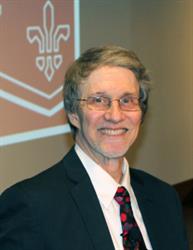Small Class Size
D&I Science Graduate Certificate Program
Adult & Child Center for Outcomes Research & Delivery Science
D&I Science Graduate Certificate Program
The mission of the Dissemination & Implementation Science Graduate Certificate Program is to equip our graduates with the D&I research skills needed to design rigorous and innovative translational research, and to successfully compete for federal funding to carry out their proposed work.
We individualize our training to address key D&I competencies and meet each trainee’s unique program goals through three key strategies
Synchronous Online Classes
Recruit from Diverse Disciplines
Degree: BA/BS
GPA: A minimum of 3.00 is recommended
Prerequisite courses: N/A
Applicants for the D&I Certificate Program must submit the following documents to the program for review:
- Statements of D&I Interests (250-word limit per question):
- What makes you interested in seeking specialized training in Dissemination and Implementation Science?
- What do you hope to gain professionally from the certificate program?
- Curriculum Vitae (CV) or Resume
Transcripts from Highest Degree (current or completed)
- You will need to contact the academic institution that you attended/are attending to obtain an unofficial or official transcript. The transcript must include a transcript legend. Typically, this is done through the Office of the Registrar but this could vary depending on the school or university.
- Unofficial transcripts are acceptable for US institution transcripts
- Official transcripts are required for any transcripts obtained from international institutions.
- When requesting an unofficial transcript from your school and/or a certified translation of your transcript, please instruct the school/translation service to send your transcript directly from their office to:
Clinical Science Program
ATTN: Amanda Whiting
University of Colorado Anschutz Medical Campus
1890 N Revere Ct., Campus Box B141
- Official electronic transcripts are encouraged and should be e-mailed to Amanda Whiting.
- Special Request: Due to the situation with the Coronavirus, we are unable to review transcripts that are mailed to the campus. Please make sure to request electronic transcripts and if those are not available, provide the program with documentation of your efforts.
Transcripts from foreign (non-US) institutions
Applicants must order Course by Course transcript evaluation from either Educational Credential Evaluators, Inc. (ECE) or World Education Services (WES). These companies also offer certified translation services for transcripts when applicable. ECE evaluation reports can be uploaded to the University portal automatically by ECE. WES evaluations should be forwarded directly to the University (make sure to request that from WES at the time of ordering the report):
- Electronic evaluations should be sent to: graduate.school@ucdenver.edu
- Hardcopy evaluations should be mailed (directly from WES) to:
Graduate School
Mail Stop C296
Fitzsimons Building, W5107
13001 E. 17th Place
Aurora, CO 80045
Special guidance for MD applicants - must include a transcript from an undergraduate degree in addition to the transcript from your MD degree.
We encourage you to contact Galit Mankin (Galit.Mankin@cuanschutz.edu) with your understanding of what your application should include in terms of these materials to confirm.
Please note that the D&I Certificate Program does not provide tuition assistance. Room and board expenses are unnecessary for this fully online program.
In addition to the general admission requirements, international applicants must meet additional requirements dictated by the University. For additional information about these requirements, please review the International Student Requirements for Graduate School admissions.
Transcripts from foreign (non-US) institutions: Applicants must order Course by Course transcript evaluation from either Educational Credential Evaluators, Inc. (ECE) or World Education Services (WES). These companies also offer certified translation services for transcripts when applicable. ECE evaluation reports can be uploaded to the University portal automatically by ECE. WES evaluations should be forwarded directly to the University (make sure to request that from WES at the time of ordering the report):
Electronic evaluations should be sent to: graduate.school@ucdenver.edu
Hardcopy evaluations should be mailed (directly from WES) to:
Graduate School
Mail Stop C296
Fitzsimons Building, W5107
13001 E. 17th Place
Aurora, CO 80045
Please note that the Certificate program does not provide stipends to assist with tuition and/or room and board expenses. In addition we currently do not have any research or teaching assistantships to support the educational costs of international students.
Apply Here
There is one application cycle per year with a start date in the Fall (August) semester. The application cycle for 2024 will be open from January 15 - February 15, 2024.
Application Link
To begin a new application:
(1) Click the link above and choose "Begin Application"
(2) Log in with CU credentials or create an account
(3) Select "Start Application"
(4) Choose "Graduate Non-Degree Admissions
(5) When prompted for your academic interests, select “Certificate”
(6) Choose "Online"
(7) Select the Dissemination and Implementation (D&I) Science graduate certificate program (this option will not be listed or available outside of the January 15 – February 15 application window)
Between January 15 and February 15, if you have questions about accessing the correct application form, please contact Galit Mankin for assistance.
Core Competencies
The certificate program courses have been mapped to core D&I competencies including the following:
- Recognizing the level of evidence required to justify disseminating a program
- Developing a rationale for selecting a D&I model or framework to guide one’s study design
- Designing pragmatic interventions
- Selecting appropriate process/outcome measures
- Engaging key stakeholders to select the appropriate implementation strategies for a given context
- Using study designs that assess and plan for adaptations, sustainability, and future dissemination
- Conducting transparent evaluations of implementation strategies that address generalizability, costs and health equity
- Balancing the need for site adaptations with internal validity needs
- Use of mixed methods approaches for evaluation of D&I studies.
COURSES
What courses are offered as part of the ACCORDS D&I Science Graduate Certificate program?
There are three required core courses:
- Introduction to D&I Research in Health (3 credit hours);
- Designs and Mixed Methods in Implementation Research (3 credit hours);
- Designing for Dissemination, Sustainability, and Equity (2 credit hours)
The Certificate program currently offers three electives:
- Context and Adaptation in Implementation Research (2 credit hours)
- Getting Your Implementation Science Grants Funded (2 credit hours)
- Advanced Research Topics in Dissemination and Implementation Science (seminar; 1 credit hour)
Additional elective courses can be selected with approval of the Certificate program director.
How many hours are required for this D&I Science Certificate?
A total of 12 credit hours of courses are required for completion. These will typically be completed over 2 calendar years but can be stretched to 3 calendar years as needed.
Is it possible to take a course or two in this D&I Science Certificate program without applying to join the program?
Yes, if there is space available in addition to the current D&I Certificate students, you may. First you must contact Amanda Whiting to reserve a spot on the waitlist.
This is our course priority policy.
Degree Seeking Students
Degree-seeking students will have the following priority for our D&I Certificate courses:
- First priority – D&I Certificate students (enrolled through the typical enrollment cycle or off cycle – those admitted off cycle will be enrolling as non-degree students)
- Second priority – Students who are part of a different CLSC degree-seeking program (e.g., MS or PhD-seeking students in the Clinical Sciences program)
Non-Degree Seeking Students
Non-degree seeking students will be given priority for participation in a course if:
- on a K-award or T-award (with priority for individuals affiliated with CU)
- part of our NIH-funded ISC3 affiliate Centers
- Affiliated with the VA QUERI
What if I start the Certificate program and then decide to pursue a graduate degree at University of Colorado Anschutz Medical campus - will the course credits be transferable?
Yes, it is possible to transfer course credit hours completed as part of the Certificate to a graduate degree program. However, the number of course credits transferable will be dependent on the graduate course requirements of your selected graduate degree program. Credits completed as part of the D&I Certificate program will likely be applied as your elective credit hours. It is extremely important that you work with the graduate program of interest to understand how many credit hours could be transferable.
Students that decide to enroll in a Master’s or PhD program after the certificate program starts will have to formally apply for that program separately.
What if I have already taken a course that is part of this Certificate - will it count towards the Certificate or do I need to take the course again?
If you took the Certificate course in the past 5 years, you do not need to retake a course. Whether it can count for the total 12 hours will need to be decided on a case-by-case basis, as there are contextual factors that influence the decision of whether it was taken as part of a prior degree and whether you are currently pursuing a degree beyond this D&I Graduate Certificate. Contact Galit Mankin at the time of enrolling in a course of this type, in order to determine next steps.
COSTS
Is there any cost to apply for the Certificate program?
Please refer to the Graduate Admissions and Application page for information about application fees: https://graduateschool.cuanschutz.edu/admissions/apply
What are the tuition costs for the Certificate courses?
Tuition costs can change year to year. Be sure to look at the University Website for updated information. On this website, select tuition and fees for The Graduate School and refer to information for "Clinical Science -- MS or PhD" for the most updated information on tuition costs for Certificate courses.
Can I apply for Financial Aid to complete this Certificate?
The D&I certificate program does not qualify for federal financial aid. Therefore, you will not be able to apply for it. For more information in this matter, please contact the Financial Aid & Scholarship Office. Any questions related to tuition classification should be address to the Office of Registrar.
What if I am a University of Colorado – Anschutz Medical Campus employee who is eligible for a tuition waiver, can I use it for the Certificate program?
If you are a current University of Colorado – Anschutz Medical Campus employee you may be eligible for a tuition assistance program. Typically, if you are using the tuition waiver you cannot enroll prior to the first day of classes; however please email Amanda Whiting to request a permission number so that we have an idea of the number of students taking the given course.
TRAINING
What if I have taken a D&I training already (e.g., TIDRH, MT-DIRC, IRI), do I still need to take the required Introduction to D&I course?
Yes, existing D&I training programs are excellent and our faculty is very familiar with them; however, they are not graduate courses. Thus, we believe that there is no current substitute for our Introduction to D&I graduate-level course. Furthermore, we have experience tailoring this course to the experience level of each student allowing for a meaningful experience for those already exposed to D&I prior to the course.
ADMISSIONS
Is it worth pursuing this Certificate if I have already done the NIH Training Institute for Dissemination and Implementation Research in Health (TIDIRH) training program?
Our program faculty believe the answer is yes, as our graduate training program has more coursework and mentored application of D&I methods to your area of research. Here is a testimonial from one of our D&I Certificate students who completed TIDIRH before applying to our Certificate program:
“I chose to pursue the D&I certificate after having participated in the NIH TIDIRH training because I wanted more exposure to the frameworks and methods of the field. TIDIRH was an introductory program and that involved asynchronous learning from experts with an in-person conference, which was great as it drew many leaders in the field, but the certificate devotes entire courses to the same topics with more time for concept development, individualized feedback, and educational growth as the classes build on each other.” - Margo Harrison, MD - University of Colorado, D&I Certificate student (2019-2021)
What is required for admission to the Certificate program?
Please refer to the Admission Requirements, Required Application Documents, and International Applicant Criteria sections above.
PROFESSIONALISM POLICY
Students accepted to the D&I Certificate Program and those students attending D&I Certificate Program courses will be expected to act with a level of professionalism consistent with the expectations outlined by the University of Colorado School of Medicine. This level of professionalism entails respect, honesty, and integrity in all aspects of their involvement in the program as it relates to the application process and participation in the program, including:
- Communications with faculty and staff – students are expected to communicate with faculty and staff in a way that is respectful, appropriate, and honest.
- Communications with fellow students and peer professionals – student communications with each other should likewise be respectful, appropriate, and encourage a positive learning environment whether face-to-face, during live discussions, or on class discussion boards.
- Academic integrity – Plagiarism will not be tolerated. Students will present their own work when required and acknowledge full credit to others where appropriate.
Process
Students who violate principles of professionalism may subject to investigative measures by the D&I Graduate Certificate program directors and/or administrative
leadership of the Colorado Clinical and Translational Sciences Institute (CCTSI). Violations of professionalism may be witnessed by faculty, who may address the student directly or elevate the concern to the program directors, or fellow students,
who are encouraged to bring any concerns to faculty or the leadership of the program.
Program plan: complete a total of 12 credit hours over a 3-year period
Required Courses (8 credit hours)
All incoming students should register for CLSC 7653 (Introduction to D&I Research in Health) for their first fall semester. This course is a prerequisite for most other courses in the Certificate program. The order of remaining courses is flexible.
| Required Courses | Instructor | Credits | Timing |
|---|---|---|---|
| CLSC 7653 Introduction to Dissemination and Implementation Research in Health | Rabin/Studts | 3 | Fall (yearly) |
| CLSC 6560 Designs and Mixed Methods in Implementation Research | Holtrop/Fort | 3* | Spring (yearly) *3 credits beginning spring 2023 |
| CLSC 6750 Designing for Dissemination, Sustainability, and Equity | Kwan/Jolles | 2 | Fall (yearly) |
Elective courses (4 credit hours)
| Elective Courses | Instructor | Credits | Timing |
| CLSC 7663 Understanding D&I Context and Adaptation | Studts/ Rabin | 2 | Spring (yearly) |
| CLSC 6770 Grant-writing for D&I Research | Glasgow/Brownson | 2 | Summer (yearly) |
| CLSC 6850 Advanced Topics in Dissemination & Implementation Science | Huebschmann/Trinkley | 1-2 | Fall (yearly) |
| Electives approved by Certificate director | Up to 3 | Varies |
Who We Are
Our Areas of Expertise
The Dissemination and Implementation (D&I) Science Graduate Certificate Program was designed to address a local and national need for rigorous training in D&I Science in health services research.
D&I science is the study of methods and strategies to facilitate the spread, adoption, implementation, and sustainment of evidence-based practices, interventions and policies in real-world and diverse health settings. As a transdisciplinary scientific
field, D&I science can address multiple cross-cutting research topics (e.g., reducing disparities in access to and quality of care; use of innovative technologies and data science to improve routine care) and health conditions (e.g., mental health,
cancer and cardiovascular disease morbidity and mortality, geriatric care) of high priority. D&I Science also has the potential to make precision health more actionable and relevant and can make the translation of discoveries in this and other
high priority areas more rapid.
The D&I Science Graduate Certificate Program is designed to provide pragmatic training to researchers who want to develop competencies in D&I science and practice which can be applied across multiple topic areas and settings in health services, clinical and community health, and public health research. The program is intended to provide researchers with solid foundational skills in D&I science, as well as intermediate and advanced skills in select D&I competency areas.
The D&I Science Graduate Certificate Program has three sponsoring units. The Adult and Child Center for Health Outcomes Research and Delivery Science (ACCORDS) acts as the primary sponsor, and the Clinical Science Graduate Program at the University of Colorado Anschutz Medical Campus acts as the secondary sponsor. The Colorado Implementation Science Center for Cancer Control and Prevention (1 P50 CA244688-01) serves as an additional sponsor. It is coordinated through the ACCORDS Dissemination and Implementation Science Program.
Christina Studts, PhD, MSPH, LCSW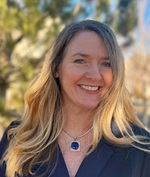
Director, D&I Graduate Certificate Program
Associate Professor of Pediatrics, University of Colorado
Dr. Studts’ mixed methods research focuses on the systematic adaptation and implementation of evidence-based health promotion interventions with underserved populations. She has a strong interest in increasing access to interventions enhancing parenting skills and parent-child relationships, particularly those that help prevent or reduce the effects of adverse childhood experiences (ACEs). In addition to leading her own program of community-engaged research, Dr. Studts serves as an implementation scientist on teams studying implementation in a variety of topical areas, including lung cancer screening, nutrition and physical activity practices in child care settings, sexual risk reduction, diagnostic testing after failed newborn hearing screens, and others.
Borsika Rabin, PhD, MPH, PharmD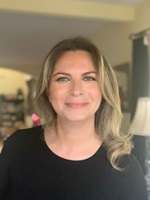
Co‐Director, D&I Graduate Certificate Program
Co‐Director, UC San Diego D&I Science Center
Associate Professor, Department of Family Medicine Research Methodology: Dissemination and implementation science, integration of research into practice, stakeholder engagement, real-world, pragmatic study designs, synthesis of measurement instruments, use of theories and frameworks, designing for dissemination and implementation, development of reviews, toolkits, and decision aids for dissemination and implementation research, review of E‐health interventions Topic areas: Broad application of the above-described methodology to studies of cancer prevention and care, development, and evaluation of cancer prognostic tools, coordination of care, ischemic heart disease in the context of diverse community-and clinic‐based settings including academic, safety net, and integrated delivery systems, VA, and rural and low-income settings.
Professor of Public Health, Washington University, St. Louis
Dr. Brownson directs the Prevention Research Center, a center that develops innovative approaches to chronic disease prevention through translational research. He leads a large number of other research and training projects funded by a broad array of federal and foundation sources, including the National Institutes of Health, the Centers for Disease Control and Prevention, and the Robert Wood Johnson Foundation. He is an associate editor of the Annual Review of Public Health and on the editorial board of six other journals. Brownson is the editor or author of 14 books including “Chronic Disease Epidemiology, Prevention, and Control,” “Evidence‐Based Public Health,” and “Dissemination and Implementation Research in Health: Translating Science to Practice.” He is the past‐president of the American College of Epidemiology and the National Association of Chronic Disease Directors. Brownson is also active in the American Public Health Association.
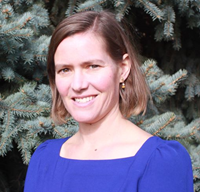 Meredith Fort, PhD, MPH
Meredith Fort, PhD, MPH
Research Assistant Professor
Department of Health Systems, Management and Policy
Dr. Fort is a Research Assistant Professor in the Colorado School of Public Health in the Department of Health Systems, Management and Policy and the Centers for American Indian and Alaska Native Health. Dr. Fort is dedicated to community-engaged research and practice and works with public health, primary care and community partners in Central America, Mexico, and the United States. Her current research focuses on: systems science approaches to design and implement multi-level and multi-sectoral interventions to prevent cardiovascular disease; hypertension control in Guatemala’s public primary care system; diabetes prevention and care in Urban Indian Health Organizations; obesity prevention; and health equity.
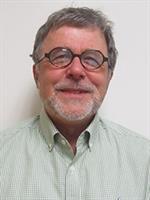 Russell E. Glasgow, PhD
Russell E. Glasgow, PhD
Director, Investigator, ACCORDS Dissemination and Implementation Science Program
Research Professor, Department of Family Medicine, University of Colorado
Dr. Glasgow is Director of the Dissemination and Implementation Program of ACCORDS and research professor in the Department of Family Medicine at the University of Colorado School of Medicine. Prior to Fall 2013, he was Deputy Director for Implementation Science in the Division of Cancer Control and Population Science at the U. S. National Cancer Institute (http://cancercontrol.cancer.gov/IS/). Dr. Glasgow is an implementation scientist and evaluation expert who has worked on many transdisciplinary research issues including chronic illness self-management, worksite health promotion, primary care-based interventions, and community-based prevention programs involving community health centers.
Amy Huebschmann, MD, MS, FACP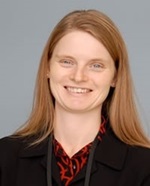
Associate Professor, Clinician‐Investigator, Division of General Internal Medicine
Past‐Chair, Society of Behavioral Medicine Education, Training, and Career Development Council
Lead Scientist, Community Education, and Outreach, University of Colorado Center for Women’s Health Research
Dr. Huebschmann is an Associate Professor at the University of Colorado School of Medicine with the Division of General Internal Medicine and the Center for Women’s Health Research. Dr. Huebschmann began her education at the University of Illinois at Urbana-Champaign, earning a BS in Environmental Engineering. She earned her medical degree in 2000 from Vanderbilt University School of Medicine and completed her residency at the University of Colorado School of Medicine. Continuing her education, most recently she earned an MS in Clinical Sciences in 2015 at the University of Colorado. She has been funded continuously by the NIH since 2011. Her overarching research goal is to reduce the burden of cardiovascular disease by delivering evidence‐based programs to prevent and treat cardiovascular risk factors, such as sedentary behavior.
Bethany M. Kwan, PhD, MSPH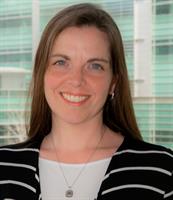
D2V Dissemination & Academic Industry Collaboration Core
Director, ACCORDS Education Program
Associate Professor of Family Medicine, Investigator, University of Colorado School of Medicine
Bethany Kwan, PhD, MSPH is an Associate Professor in the Department of Family Medicine at the University of Colorado School of Medicine, Anschutz Medical Campus. She received her PhD in social psychology from the University of Colorado Boulder in 2010, following an MSPH from the University of Colorado Health Sciences Center in 2005. She holds a BS in Chemistry and Psychology from Carnegie Mellon University (’01). As an investigator in the University of Colorado’s Adult & Child Consortium for Health Outcomes Research and Delivery Science (ACCORDS), she conducts pragmatic, patient-centered research and evaluation on health and health care in a variety of areas. With an emphasis on stakeholder engagement and dissemination and implementation (D&I) methods, her work addresses the integration of physical and behavioral health, chronic disease self-management, improving processes and systems of care to achieve the Quadruple Aim, pragmatic trials using electronic health data, and enhancing the quality of life for patients and care partners. She works with patients and other stakeholders at all phases of research, from prioritization, to design, implementation, and dissemination of research. She mentors and teaches students, trainees, and fellow faculty on Designing for Dissemination to ensure that research innovations are efficiently and effectively adopted, used, and sustained in real-world settings to improve health and well-being for all. Dr. Kwan directs the ACCORDS Education program as well as the Colorado Clinical & Translational Sciences Institute (CCTSI) Dissemination & Implementation Research Core.
Mónica Pérez Jolles, PhD, MA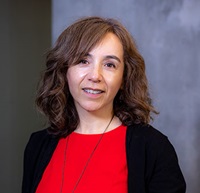
Associate Professor, Department of Pediatrics
Mónica Pérez Jolles, PhD, MA, is a health services and implementation scientist seeks to close the health gap through team-based science by actively engaging healthcare providers, administrators, and patients/community members to increase the capacity of Federally Qualified Health Centers to implement multi-level interventions; particularly family-centered and trauma-informed care. She approaches program development and testing from ecological and complex systems perspectives and uses mixed methods. Her research focuses on pragmatic trials recruiting under-represented patient populations, and on evidence-informed methods promoting co-created partner engagement in research.
Katy Trinkley, PharmD, PhD
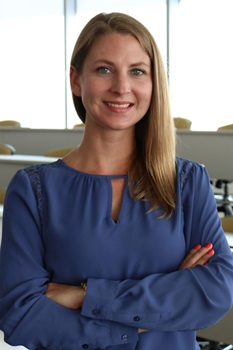
Associate Professor
Dr. Katy Trinkley is an associate professor at the University of Colorado. She graduated with her Doctor of Pharmacy from Purdue
University and PhD in health information technology from the University of Colorado. She completed a Residency and Research Fellowship at the Ohio State University. She is a primary care clinical pharmacist and the only clinical pharmacist-informaticist at University of Colorado Health (UCHealth). Dr. Trinkley’s research focuses on leveraging data and implementation science to create innovative health information technologies to optimize safe and effective medication use. Most of her research focuses on clinical decision support tools within the electronic health record to optimize therapies for chronic cardiovascular disease.
Galit Mankin, MSW
Galit Mankin is the administrative lead for the clinical science programs of Colorado Clinical and Translational Sciences Institute. For questions about enrollment or logistics concerning the D&I program, please email her at GALIT.MANKIN@CUANSCHUTZ.EDU
Jordan Crawford, MPH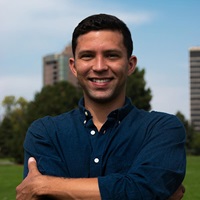
Jordan Crawford is the program coordinator for the D&I Certificate Program. He assists the certificate directors to communicate with students and to coordinate the internal logistics of the program. He works within ACCORDS as the Senior Education Program Coordinator.
Email: Jordan.2.Crawford@cuanschutz.edu
Graduate Profiles
2023
Roman Aydiko Ayele, PhD, MPH
Health Research Scientist
Denver-Seattle Center of Innovation
Eastern Colorado VA Healthcare System
Associate Professor of Medicine
Department of Medicine
Weill Cornell Medical College of Medicine
Rebecca J. Guerin, PhD, CHES
Associate Director for Science
National Institute for Occupational Safety and Health (NIOSH)
Centers for Disease Control and Prevention (CDC)
Erin A. Hirsch, PhD, MSCS, MSPH
Post-Doctoral Research Fellow
Center for Discovery & Innovation at Hackensack Meridian Health
Andrea Jimenez-Zambrano, PhD, MPH
Assistant Professor
Adult and Child Center for Outcomes Research and Delivery Science
Department of Pediatrics
University of Colorado Anschutz School of Medicine
Sarah Michelle Kennedy, PsyD
Assistant Professor
University of Colorado Anschutz School of Medicine, Department of Psychiatry
Marie Masotya, MPH
Senior Research Coordinator, Pediatrics
UH Rainbow Babies & Children’s Hospital
Rakesh D. Mistry, MD, MS
Professor of Pediatrics
Section of Emergency Medicine, Department of Pediatrics
Yale School of Medicine
Assistant Professor
University of Colorado Anschutz School of Medicine, Department of Pediatrics
2022
Claudia Amura, PhD, MPH
Assistant Professor
University of Colorado Anschutz School of Medicine, Division of Behavioral, Family and Population Health
Assistant Professor, Emergency Medicine, Center for Health Innovations and Outcomes Research
Northwell Health
Hofstra University School of Medicine
Feinstein Institute for Medical Research
Carol Brown, PhD
Deputy Director/Associate Director of Business Operations
University of Colorado Anschutz School of Medicine, Center for Health, Work & Environment, Colorado School of Public Health
Jason Hoppe, DO
Associate Professor
University of Colorado Anschutz School of Medicine
Assistant Professor
University of Colorado Anschutz School of Medicine, Division of Hospital Medicine
Assistant Professor, Rehabilitation Medicine
University of Minnesota
Assistant Professor
University of Colorado Anschutz School of Medicine, Division of Health Systems, Leadership, and Informatics
Danielle Ostendorf, PhD
Post-Doctoral Fellow
University of Colorado Anschutz School of Medicine, Division of Medicine, Endocrinology, Metabolism, and Diabetes
Heidi Sjoberg, LCSW
Research Social Worker
University of Colorado Anschutz School of Medicine, Department of Veteran Affairs
Katy Trinkley, PharmD, PhD, BCACP, FCP,
Associate Professor
University of Colorado Anschutz School of Medicine, Department of Clinical Pharmacy
Nicole Wagner, PhD, MPH
Adult and Child Consortium for Outcomes Research and Delivery Science IMPACT K12 Scholar
University of Colorado, Anschutz Medical Campus
2021
Meredith Fort, PhD
Research Assistant Professor, Department of Health Systems, Management and Policy
Centers for American Indian and Alaska Native Health
Colorado School of Public Health
Margo S. Harrison, MD
Assistant Professor
University of Colorado Anschutz School of Medicine, Division of General Ob/Gyn, School of Medicine
Jason Mansoori, MD
Assistant Professor
University of Colorado Anschutz School of Medicine, Division of Pulmonary Sciences and Critical Care
2020
Matthew James Simpson, MD
Assistant Professor
University of Colorado Anschutz School of Medicine, Department of Family Medicine
Student Profiles
2023 COHORT
Lauren Abbate, MD, PhD
Assistant Professor
Department of Emergency Medicine
University of Colorado School of Medicine
Kristine Erlandson, MD, MS
Associate Professor
Division of Infectious Disease
Department of Medicine
University of Colorado School of Medicine
David Higgins, MD, MPH, MS
Instructor
Department of Pediatrics
University of Colorado School of Medicine
Assistant Professor
Department of Physical Medicine and Rehabilitation
University of Colorado School of Medicine
Michael Mattiucci, MD, MPH
Instructor Fellow
Department of Pediatrics
University of Colorado School of Medicine
Jennifer Maybee, MA
Speech-Language Pathologist III
Pediatric Rehabilitation
Children's Hospital Colorado
Colorado Clinical and Translational Sciences Institute
Laurie McLouth, PhD
Assistant Professor of Behavioral Science
College of Medicine
University of Kentucky
Elizabeth Rhodus, PhD, MS, OTR/L
Assistant Professor
College of Medicine
University of Kentucky
Jennifer L. Sullivan, PhD, MS, BA | LinkedIn
Associate Professor (Brown), Associate Director (VA)
Department of Health Services, Policy, and Practice
Brown University
VA Long Term Services & Supports Center for Innovation
Nicole Teal, MD, MPH
Associate Professor
Department of Obstetrics, Gynecology, and Reproductive Sciences
University of California, San Diego
Associate Professor
Division of Surgical Oncology
Department of Surgery
University of Colorado School of Medicine
General Pediatrician
Denver Health
Assistant Professor
Division of Vascular Surgery
University of Colorado School of Medicine
2021 COHORTS
Cindy Blair, PhD
Assistant Professor
University of New Mexico Comprehensive Cancer Center
Elena Broaddus, PhD
Senior Instructor
University of Colorado Anschutz School of Medicine
Application Contact
For questions about the application contact us here
D&I Certificate Contact
For questions about the D&I Certificate program content contact us here
Contact Us
Need help finding a resource not listed on our website? Have feedback about the website?
CMS Login
